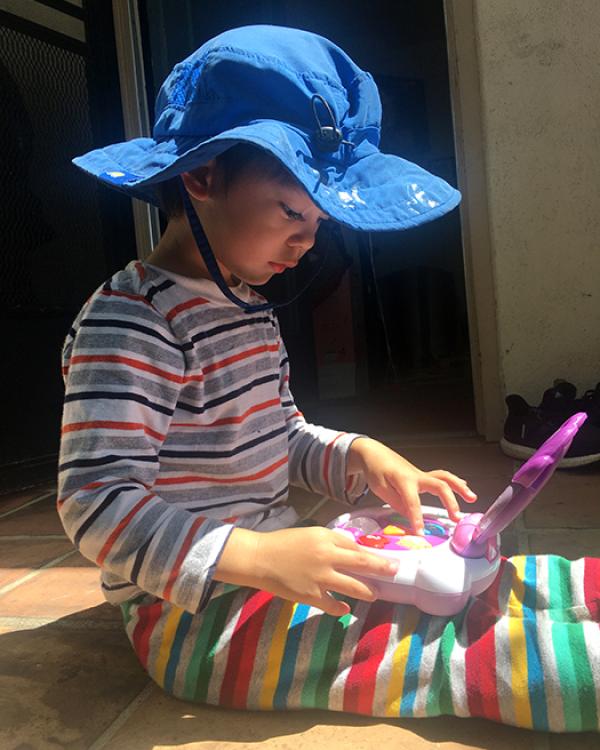
Series of three webinars begins May 27 with presentation “School @ home: the basics”
For decades UC Santa Barbara’s Gevirtz Graduate School of Education has been a leader in training teachers. Now, its world-class faculty will repurpose their expertise to teach parents and caregivers important skills to make this challenging period of distance education not just possible, but effective. What’s more, because the Gevirtz School also is home to experts in applied psychology, the series will also cover topics such as social-emotional support. Overall, the series will provide support for families and help provide ways to avoid “summer slide” in this very peculiar summer.
How to Home and School: A UC Santa Barbara Gevirtz School Webinar Series for Parents and Caregivers will be a series of hour-long Zoom webinars free and open to the public. In each episode, a Gevirtz School professor will not only provide helpful, theory-based practical tips, but also take questions from those participating in the session. Each session will be presented in English and Spanish. Afterward each will be posted on the Gevirtz School website.
The first three presentations will be:
“School @ home: the basics” with Dr. Jason Duque on Wednesday, May 27 at 6 pm Pacific
An exploration of the best possible learning conditions that parents can provide for education at home and what to do when an optimal environment isn’t possible.
“Family Resilience in Stressful and Uncertain Times” with Dr. Maryam Kia-Keating on Wednesday, June 3 at 11 am Pacific
An exploration of the idea of resilience and how it can be cultivate and encouraged. This webinar will also look at realistic ideas for ways that parents/caretakers can take care of themselves, (so they can have something left to give to their children and family).
“Staying in this Together: Tips for Adapting and Coping” with Dr. Erika Felix on Thursday, June 11 at 6 pm Pacific
An exploration of how parents/caretakers can recognize signs of emotional distress caused by the collectively shared trauma of the pandemic in their kids and families, and the best ways to support kids over time with evidence based approaches.
“It seems crucial that in the face of the coronavirus pandemic our school step up and do what we do so well,” says Gevirtz School Dean Jeffrey Milem. “In a given year we prepare 80 candidates for their teaching credentials, train numerous school psychologists, and do the research to make all their work more effective and better informed. Now we will take all that expertise and provide it to parents and caregivers as they try to adapt to a new world where their house is not just a home, but also an office and a schoolroom.”
Participants for the webinars are asked to sign up at this registration page, where they will receive the link for each Zoom meeting.
After the initial event, all three presentations will be archived online.
Jason Duque (Ph.D., Stanford University) is a Teaching Professor in the Department of Education and Teacher Education Program. Maryam Kia-Keating (Ph.D., Boston University) is an Associate Professor of Clinical Psychology in the Department of Counseling, Clinical, and School Psychology and a licensed psychologist. Erika Felix (Ph.D., DePaul University) is an Associate Professor of Clinical Psychology in the Department of Counseling, Clinical, and School Psychology and a licensed psychologist.
The Gevirtz Graduate School of Education is a hub of educational innovation with world-class research produced by distinguished faculty and exceptional graduate students who are doing leading-edge work in research methods, science and mathematics education, literacy education, second language learning, culture and language, educational policy, autism, school safety, positive psychology, resilience and recovery from trauma, and strengths-based interventions with vulnerable populations. . . and this is only a partial list of the excellent work that we do at the Gevirtz School. The School is comprised of the Department of Education, the Department of Counseling, Clinical, and School Psychology, and the Teacher Education Department.